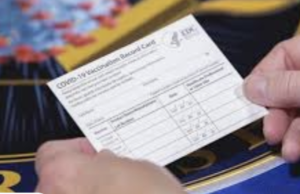2016 White House run offers four lessons
So you thought we were done with writing about politics. Wrong! With one of the most shocking and historical elections finally coming to a rather unexpected end, it is important to reflect on the effects of the cycle and how they will change future election politics. Here are the four reasons this election changes everything.
1. A New Focus on Personality Politics
Donald Trump will arguably be the first populist president since the the seventh president of the United States, Andrew Jackson. Jackson, however, held military experience while Trump has no experience holding any public office or having any military experience whatsoever.
The reason people supported Hillary Clinton is the same reason people hated her. With a staunch resume of government experience, many believe Clinton to be “the most qualified candidate of all time.” However, many people despise her for just this reason, citing that she is one elite of many in Washington, and that the government needs a break from the elite and career politicians. From now on, it will become accepted for candidates to run without political experience just as Trump did, and it will be much easier for them to win with this new precedent based on personality politics.
Personality politics allow candidates like Trump to create a unique platform not based on political ideas themselves, but the way they act and are projected and attract the support of the American people, with plans and ideas themselves taking a back seat to the new deciding factors of difference in personality between candidates and the way they are viewed, just as it was between Clinton and Trump.
2. There are two Americas
Trump utterly failed in gaining urban votes, while Clinton failed at catering to rural voters. In 2016, the people who propelled Trump’s election were rural and small-town, working-class, uneducated, white, male voters.
According to the National Public Radio, “White college graduates favored Trump by 4 points this year, a stark contrast to whites without college degrees, who preferred Trump by 39 points. Compared to past polling data, that suggests that this year’s educational divide among whites is far more pronounced than it has been in recent years.”
The rise in rural voters, like those who significantly helped Trump win, can probably be contributed to the fact that the economic fortune and prosperity many urban voters feel they have is not shared with those who live in rural or suburban communities. Trump made no real play to cater to those who the Democrats gained many of their votes from: minorities, those with college degrees and those who reside in urban areas, instead catering to the “common” man’s problems often felt in the heart of America’s rural communities.
The feelings of government between urban and rural voters has accounted for an increasingly wide gap between two Americas. Rural voters, who historically tend to vote Republican, often share the common feeling that those in cities do not understand “real” problems that rural America faces, which Trump’s campaign catered to. The polarization of urban ideals vs. rural ideals has left the two groups greatly disconnected from the rest of the country.
3. Polling Means Nothing
If you were not living on a rock for the past few months, it was exceptionally rare for Trump to be leading in the polls. With virtually every poll predicting a Clinton presidency, the election of 2016 can easily be considered the greatest political upset since Harry Truman’s election in 1948.
Though the pollsters predicted the final outcome of the election wrong, they did predict correctly that more people would vote for Clinton, who won the popular vote over Trump, but still lost the election due to not receiving enough electoral votes. Because America uses the electoral college, state polls are the ones that truly matter when predicting the outcome of the election, not national polls.
Another reason the polling was so inaccurate could be contributed to the Bradley Effect, which proposes that voters say they vote for one candidate to eliminate embarrassment or labels, yet when the curtain is closed in that voting booth, voters vote for a different candidate. With all the controversial things Trump has said or done in the election cycle and the number of people who label him as a racist or sexist, it is easy to see why voters would be embarrassed to admit they were voting for Trump when being polled because they fear being thought of as racist or sexist.
Exit polls also utterly failed in estimating the importance of white, working-class voters, who carried the Trump campaign. After this election, it can be assumed that a distrust of polls will be a common feeling throughout America, and that polls will be worth nothing in the prediction of elections. If polls desire to be trusted again, the method of polling will have to face a substantial change in the way they are conducted.
4. The extreme questioning of the American political system
The system has failed a candidate yet again. The Trump victory is only the fifth time in history that a candidate has been elected without winning the popular vote.
Americans do not directly elect the president, rather they are voting for a group of people called electors who are chosen by the states who pledge to cast their votes for the candidate that wins each state.
Since the election and the fact that Clinton leads in the popular vote, many people are calling for the abolishment of the electoral college, though it seems as if after every election, there are hushed voices of the radical revamping of the electoral system. After the election of 2000 where George W. Bush defeated Al Gore without receiving the popular vote, it led to a Supreme Court case and anger among Americans.
Because there have been two instances of the system failing Americans on what their country promised, power to the people, happening in the span of only 16 years, the whispers have turned to shouts and violent protests, and many people have come to greater question the necessity of the Electoral College.
On the contrary, many believe that the Electoral College gives small states a voice in the result of the election that they would not have if it were not for the electoral votes.
The United States prides itself on being a nation ruled by the people, often boasting the power of the people. It is coming to serious question whether or not it is right that someone can take office as the president of the United States without truly being elected by the people.









You must be logged in to post a comment Login